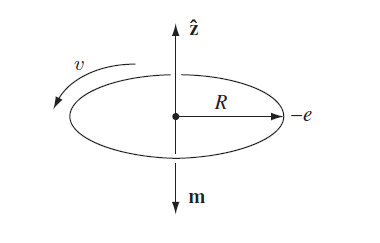I just want to confirm my understanding of spin-orbit coupling of a Hydrogen atom. Is the idea that the spin of the electron has a magnetic dipole moment and the orbit of the electron has a dipole moment as well. We know that dipole moments produce a magentic field, hence the dipole moment of the orbiting electron produces an magnetic field which exerts a torque on the dipole moment of the spin dipole magnetic moment.
Is this the basic idea? This seems strange, so the magnetic field of the electron (through the magnetic field of the orbit dipole moment) is exerting a force on itself (since the magnetic field of the orbit dipole moment exerts a force (torque) on the spin dipole moment)?
Would the picture then be as follows (where the orbital dipole moment is in the center and produces a magnetic field on the spin dipole vector located a distance $R$ away at the point of the electron). I understand that these are classical ideas for a quantum concept but I just want to get the best classical picture for now:
Thanks for any clarity.

